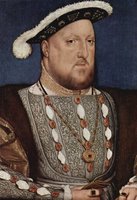
Publius reflects on the recent Libby revelations by accurately summarizing the grand theory of Bushism: the Executive defines the limits of its own power. Not a good theory, and one with dreadful practical consequences for America and the world.
Unfortunately, many liberal Americans have thrown around the phrase "King George" or, on a more sophisticated level, emphasized the discontinuity between the British traditions of the royal prerogative and America's post-revolutionary constitution (Cass Sunstein, I'm looking at you).
These discontinuities exist. Clearly, there is a link between Article I's list of powers given to Congress, and Blackstone's list of the King's Prerogatives in relation to war and foreign affairs. The British Crown could (and can) declare war, issue letters of marque and reprisal and enter into treaties, and the framers thought the American President shouldn't be allowed to do these things (although in the 20th century, these restrictions have been honoured principally in the breach).
But, at a more basic level, the principle Yoo and Bush are asserting is an attack on the British Constitution as Blackstone would have understood it, and as Hamilton and Madison would certainly have wanted to preserve it. The Crown *does not* determine the limits of its own preorogative.
The key to the prerogative is that it is a matter of common law. Common law is defined by the courts, and subject to alteration by Parliament. Since the prerogative is a matter of common law, its existing limits are ultimately decided, not by the executive, but by the judiciary, and its limits can be restricted to any degree by Parliament.
Amazingly, even Henry VIII accepted this principle: "We are at the height of our sovereignty when we act by and with the advice and consent of the Lords Spiritual and Temporal and the Commons." As a result, statutes were the Crown acting at the *height* of its sovereignty, while ordinary executive action were the Crown in a relatively subordinated position. There could therefore be no limit, in principle, to Parliament's ability to restrict executive power. By John Yoo's standards, Henry VIII was a wuss.

No comments:
Post a Comment